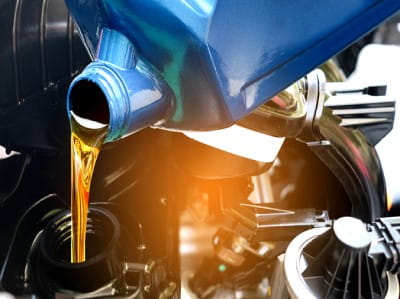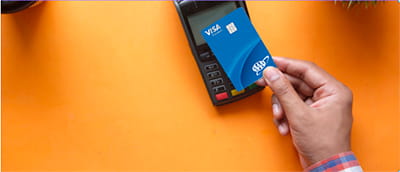John Townsend
Public Relations Manager, DC
O: (202) 481-6820 (ext. 4462108)
C: (202) 253-2171
jtownsend@aaamidatlantic.com
WASHINGTON, D. C. (Thursday, February 14, 2019) –– You might not know the difference between “oxidation” and “oxidization,” or even care if there really is any. But you should care about any threat of oxidization, rust, or corrosion on your vehicle resulting from exposure to the elements and to deicing salt, anti-icing and other road chemicals used to treat area roadways during ice and snow events each winter. Most people assume the sun’s relentless ultraviolet (UV) rays cause a vehicle’s paint job to oxidize and, left unchecked, to appear “chalky and scarred.” But the sun is not the only culprit. “Salt spray and road salts can also cause a condition called oxidation,” research shows. Washing and waxing prevent that from happening.
The grime, the gunk, the grit, the goo and all that road salt. It is coating our cars and trucks like a second skin. What’s a neat freak to do? Well, motorists should wash away any traces of recent snow and ice storms from their vehicles without delay to protect their vehicle’s fine finish, exterior and interior, advises AAA Mid-Atlantic. Road de-icers cause $3 billion annually in vehicle rust damage, according to AAA.
“Talking about the car wash, girl.” This week is bookended by several wintry mixes, and weather forecasters are prognosticating temperatures in the 50s today, making Thursday the opportune time to wash your car or to head over to the car wash, where there will be long lines. It happened last week at car washes across the Washington metro area when residents basked in above-normal temperatures. After the Polar Vortex in early February, some car washes up and down the Eastern seaboard saw an increase in business.
If given a free rein, winter weather and road conditions and road chemicals can cause considerable and costly damage to a vehicle’s paint, its stylish exterior, its frame and its chassis.
“Even in the dead of winter motorists ought to regularly wash their vehicles to prevent rust and paint damage,” said John B. Townsend II, AAA Mid-Atlantic’s Manager of Public and Government Affairs. “Corrosive substances - including winter road or rock salt, sand and brine, slush, and road salt mists - plus, grime and oxidization can easily turn a showroom car into a rust-bucket.”
A vehicle’s frame, doors, undercarriage, wheel wells, brake drums, chrome wheels, and paint coating are breeding grounds for rust and corrosion. “Corrosion rates increase with increasing temperature,” the experts say. So wash your car frequently this winter, especially its “hard-to-reach nooks and crannies,” to wash away the salt residue. Motorists are flocking to express car wash tunnels, in-bay automatic car washes, and self-serve car wash locations. Yet a survey of the nation’s car wash establishments, and its customer base reveals, “47% of consumers get their car washed every couple of months, while 20% do so twice a year and 5% only once a year,” according to the Washos blog.
The United States uses “over 20 million tons of road salt every year.” Seems like all of it is on your car. What is more, road salt “also acts as a catalyst to speed up the oxidation process even further, as salt is a pretty potent electrolyte when dissolved in water.” Here is the cold, hard truth: salt and liquid de-icers can rust and corrode key vehicle apparatus and parts. The repair costs are pricey. U.S. drivers paid an estimated $15.4 billion in rust repairs caused by de-icing methods over the last five years, according to AAA survey. That’s approximately $3 billion annually.
For the 2018-2019 winter season, Maryland budgeted “$71 million to remove snow and ice” from roadways across the state. The arsenal includes rock salt and a salt-brine solution used as an “anti-icing agent on highways” before and after winter storms. With more than 400 pieces of snow-removing equipment at its disposal during a snow or ice event, District’s “Snow Team” utilizes an array of rock salt, de-icers, and a “salt brine/beet juice mixture” while “plowing and salting along major roads and residential streets.”
All told, the District received “7.8 inches of snow” last winter, “which is roughly half of its historic average.” Yet the District used “433,000 gallons of liquid brine and just under 24,000 tons of salt” during the last winter season. Ahead of the winter of 2018-2019, the Virginia Department of Transportation (VDOT) had in stock “more than 700,000 tons of salt, sand and treated abrasives, and 2.1 million gallons of brine and liquid chloride.” So wash those road chemicals and de-icers right out of and off your car.
“The application of de-icing salts and solutions is critical to keeping roadways safe every winter across the Washington metro area and the nation. Yet it’s important that drivers pay attention to warning signs that their vehicles may be suffering from rust-related damage,” explained James Moore, Manager, AAA Mid-Atlantic Car Care Center. “This can be much more than a cosmetic issue, it can also create serious safety issues for drivers by impacting brake lines, exhaust systems, fuel tanks and electrical connections.”
Complaints are mounting across the country about rusty brakes and suspension parts, safety problems and costly repairs. AAA strongly urges drivers who experience the following vehicle malfunctions to immediately move their vehicles off the road to a safe location and have it towed to a trusted repair facility.
- In-dash warning lights for brakes and other critical systems.
- A spongy or soft feeling when applying pressure to the brake pedal.
- An unusually loud exhaust sound or the smell of fumes in or around the vehicle.
- The prominent smell of gasoline or diesel fuel when the vehicle is parked or running.
“To keep winter road treatment damage at bay every inch of the car should be washed – from top to bottom and from its front grille to its rear bumpers– and that includes the under-body and each wheel well,” said Kendall Bramble, Insurance Counselor, AAA Mid-Atlantic Insurance. “You have to be pro-active in flushing the salt brine, salt, sand, road de-icing chemicals, and other liquid agents off your car. In fact, you should either wash or have your car washed at least every one to two weeks. Be sure to regularly wash the under-body during the winter months.”
If you don’t want to get your hands dirty, call a mobile car wash business or an automobile detailer who washes the vehicle in your garage or at your home. Or you can take your vehicle to manual car washes that employ crews who wash your car by hand or to an automatic car wash centers. It’s wintertime, but they are “working at the car wash today.” If you opt to take your vehicle to a manual car wash location or an automatic drive-through car-wash facility, don’t go to one that uses recycled water.
Across the United States, “there are 16,000 car wash establishments, whose yearly revenues add up to a shocking $9 billion,” notes the Washos blog. AAA provides this video with tips galore for washing and drying your vehicle and maintaining its appearance during all four seasons.
Follow us on Twitter: @AAADCNews
Like us on Facebook: AAA Mid-Atlantic News
Washington, D.C. Mailing Address:
1405 G Street NW
Washington, DC 20005
AAA provides automotive, travel and insurance services to 59 million members nationwide and nearly 80,000 members in the District of Columbia. AAA advocates for the safety and mobility of its members and has been committed to outstanding road service for more than 100 years. The not-for-profit, fully tax-paying member organization works on behalf of motorists, who can now map a route, find local gas prices, discover discounts, book a hotel and track their roadside assistance service with the AAA Mobile app for iPhone, iPad and Android. For more information, visit https://aaa.com
Ragina C. Ali
Public Relations Manager, MD
O: (410) 616-1900 (ext. 4361152)
C: (443) 465-5020
RAli@aaamidatlantic.com







